As mentioned in the previous entry, we find it hard to move beyond Tuk Tuk.
At last, we rent a scooter from our guesthouse. (One of our guesthouses – we move between two, to spread our business. The other one is the Sibigo.)
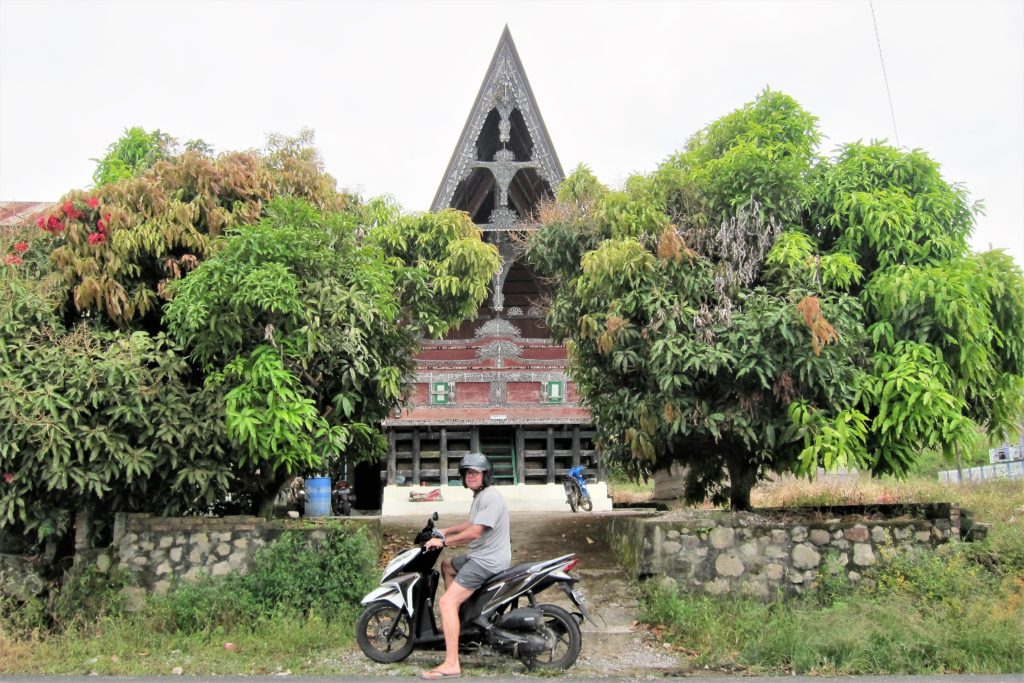
This street sign in Batak script piques our linguistic interest. This script pre-dates the arrival of Europeans.
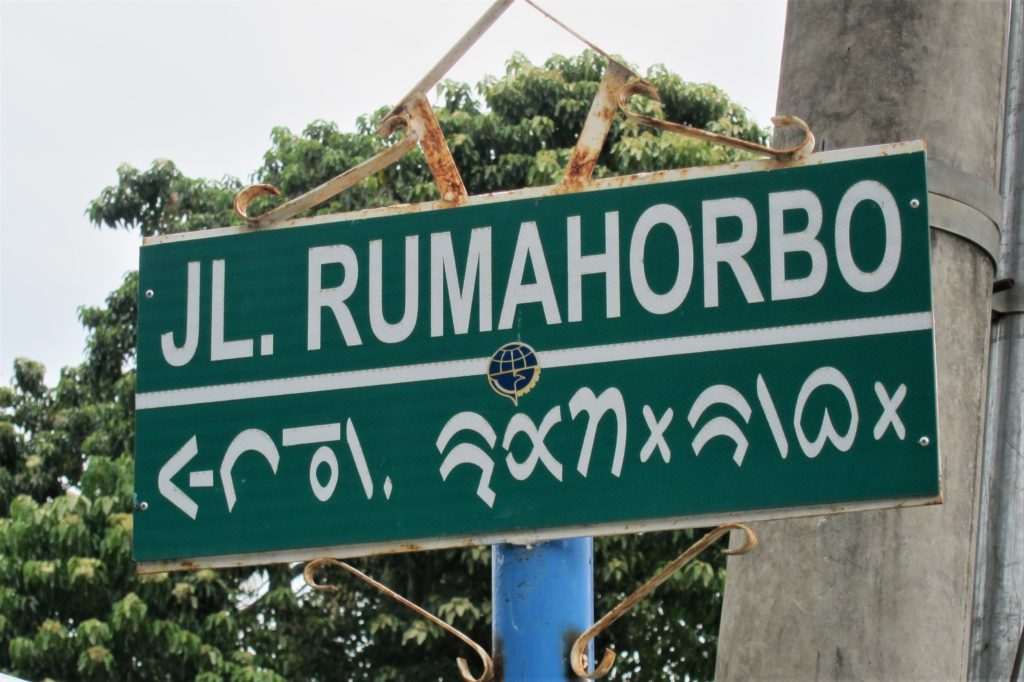
We can’t get enough of these traditional Batak houses.
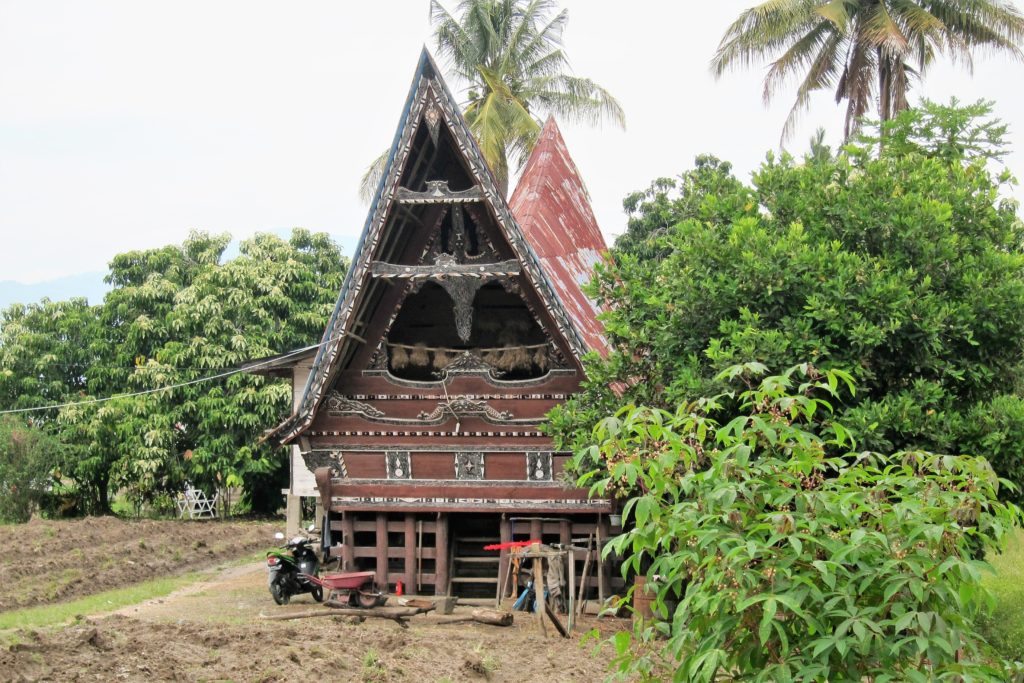
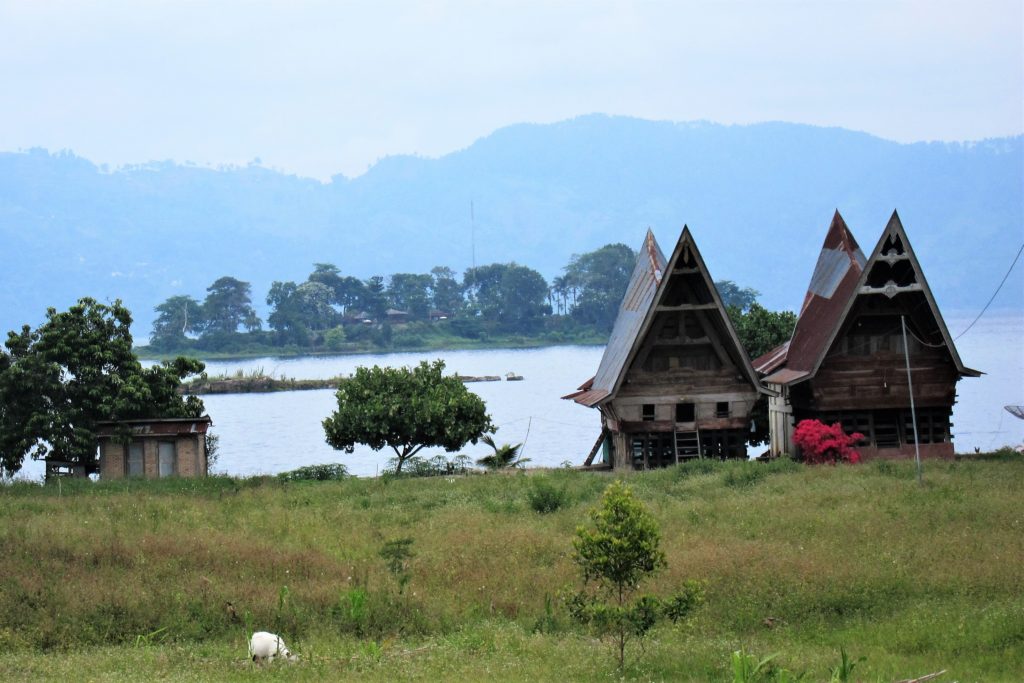
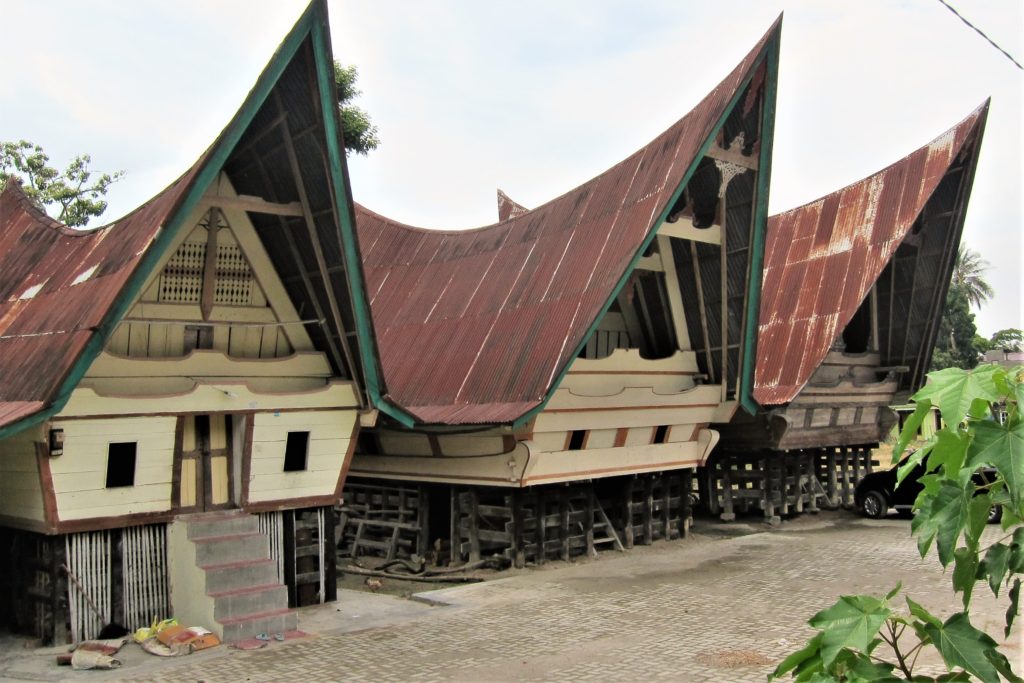
After a few more days of idleness, we travel around the island clockwise.
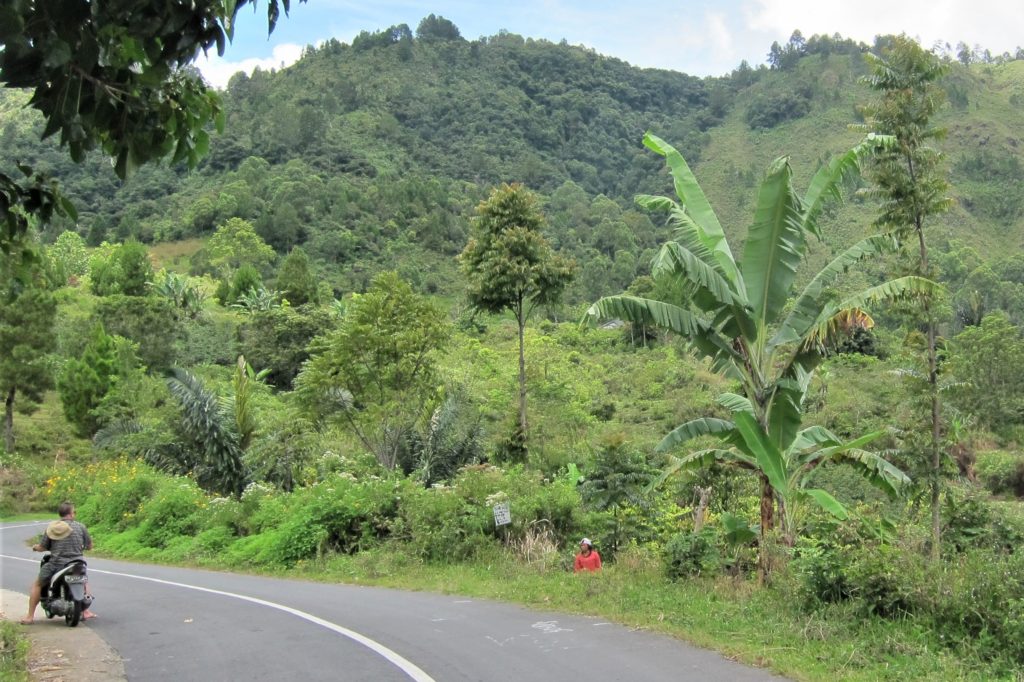
Lake Toba from the heights of Samosir Island looks almost Scandinavian.
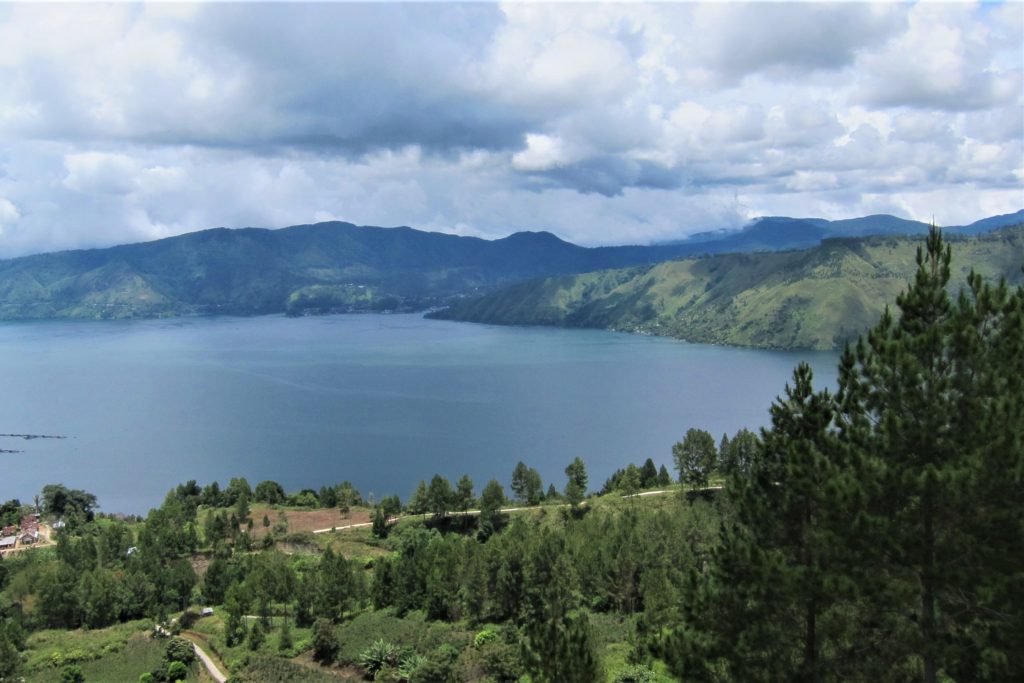
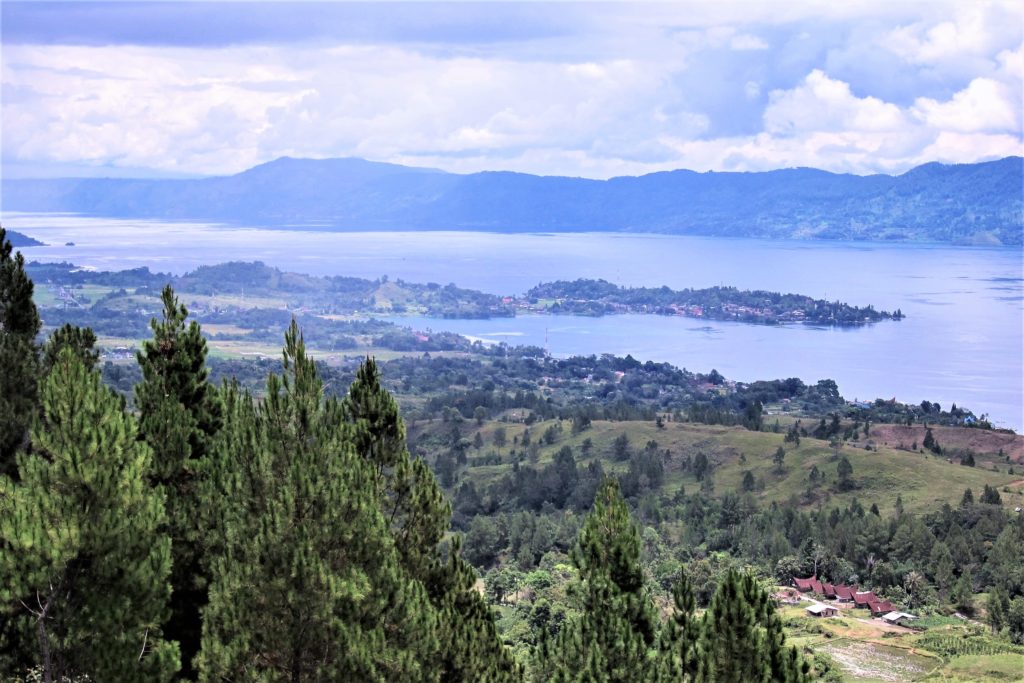
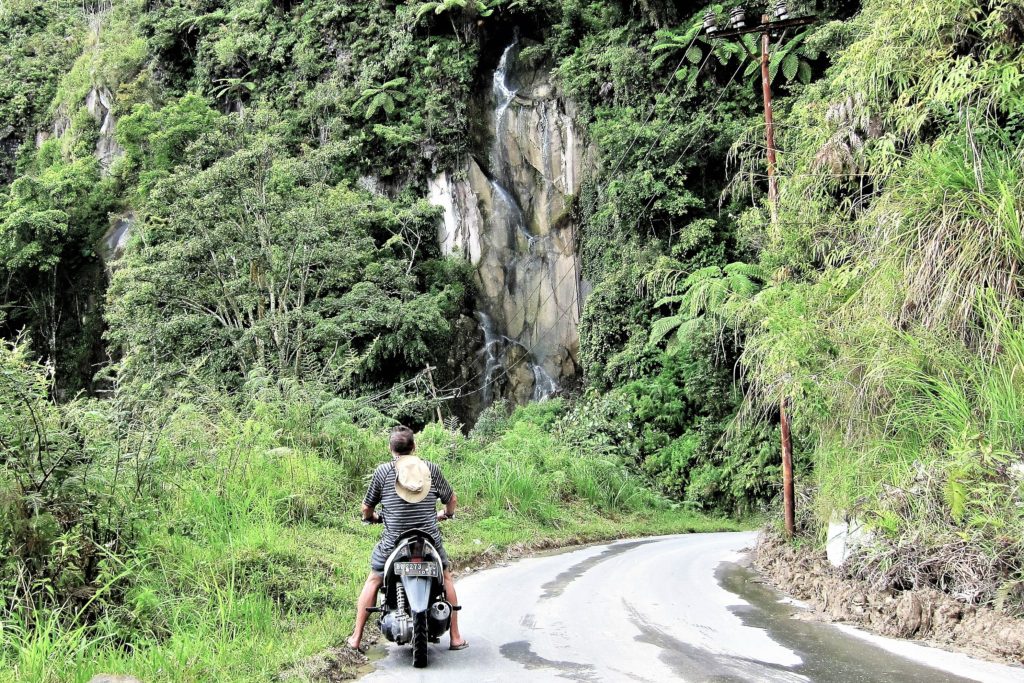
We’ll miss this place when we leave. The people are very musical. Lots of singing going on.
In one of our guesthouses, everyone in the family is musically talented. It’s like staying with the Partridge Family.
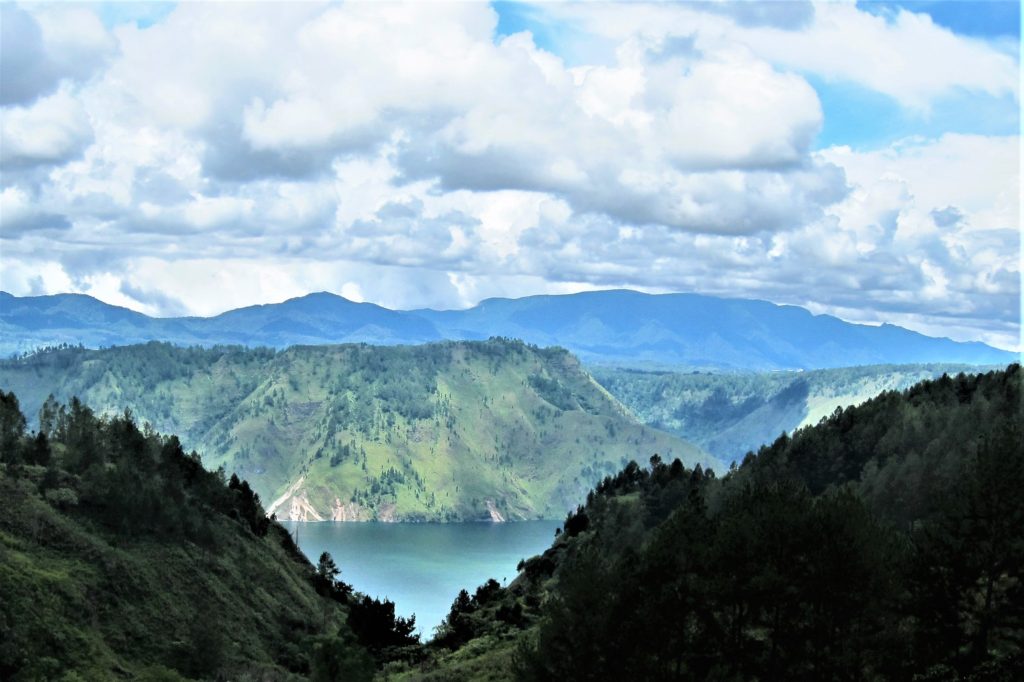
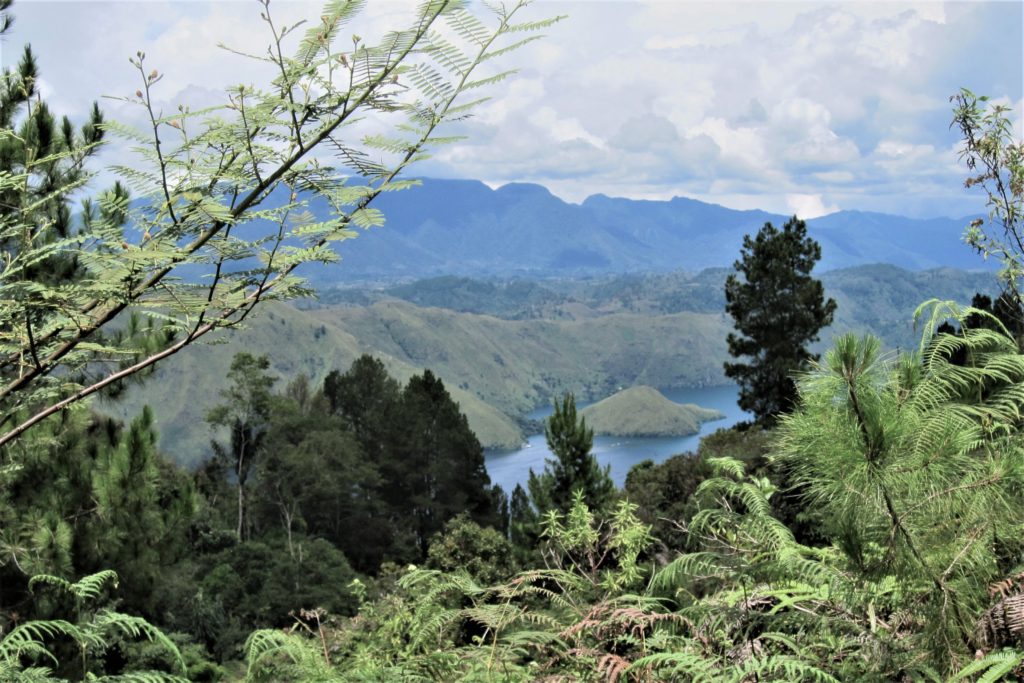
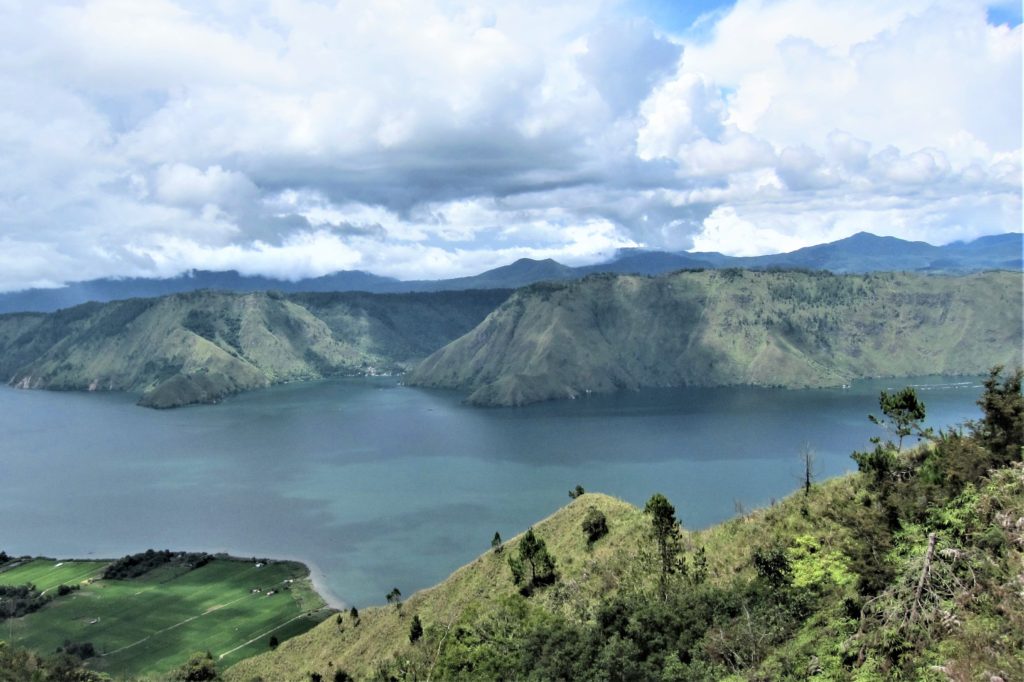
We stop for a lunch of instant noodles at a roadside stand.
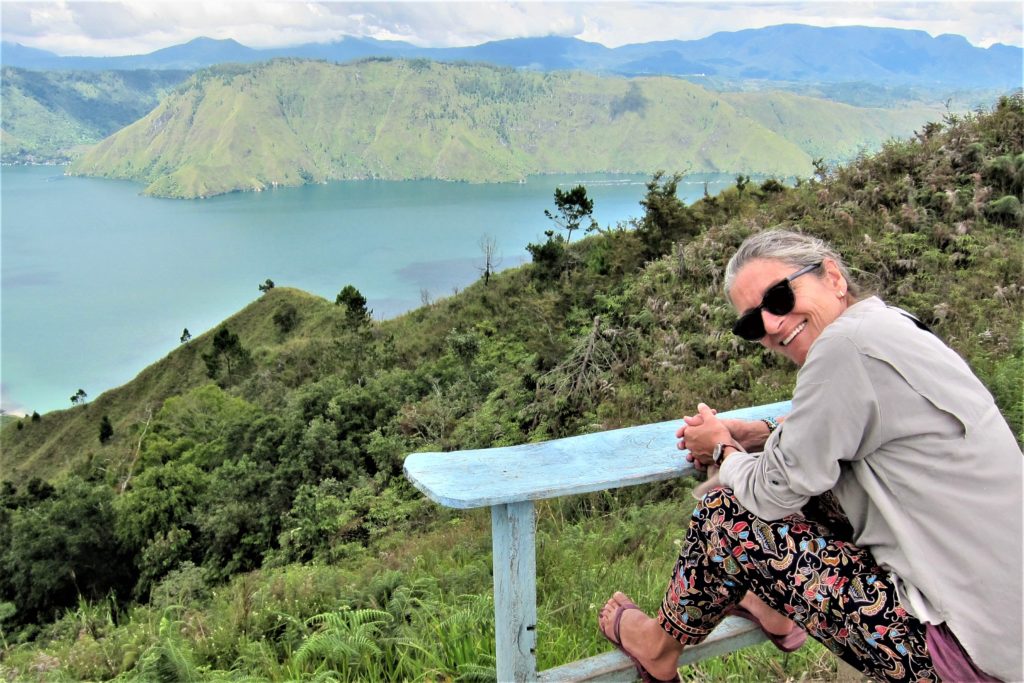
Another similarity with Madagascar – terraced rice cultivation.
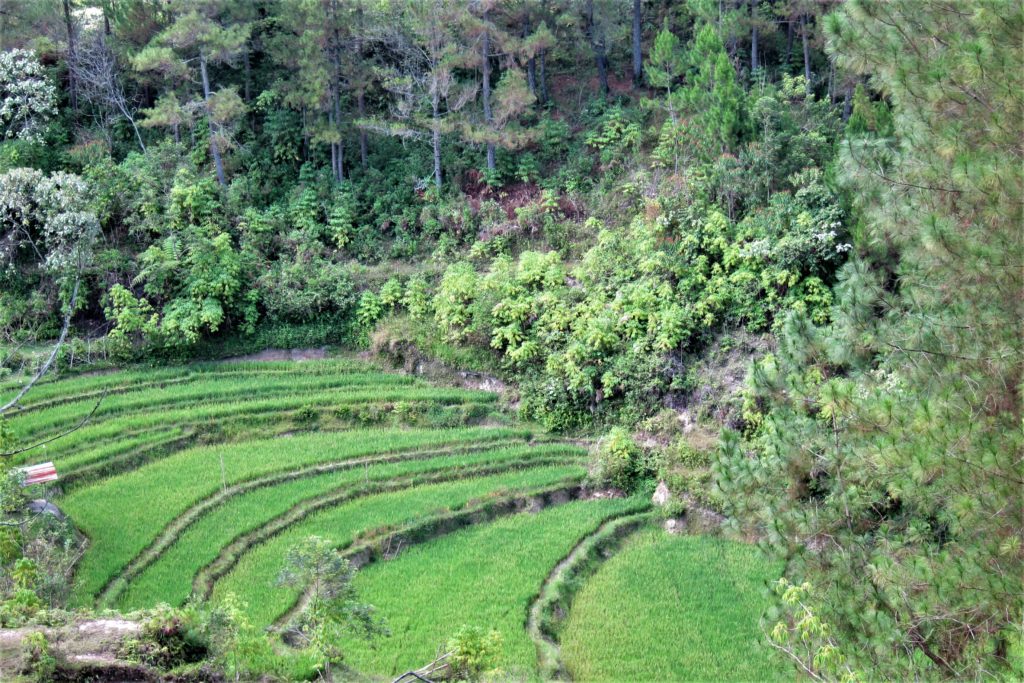
Sight or Insight of the Day – beyond Tuk Tuk
When in Madagascar a few years ago, we learn that that island was populated -fairly recently – by people from this part of the world (that is, the Malay Archipelago). Among other things that may have an origin here are unusual funeral customs.
In Madagascar, they have parties for the deceased after a few years, give them gifts like new clothes, then rebury them.
In the Lake Toba area, people dig up the deceased, throw them a bash, wash their bones, then place the bones in little buildings called ‘tugus’.
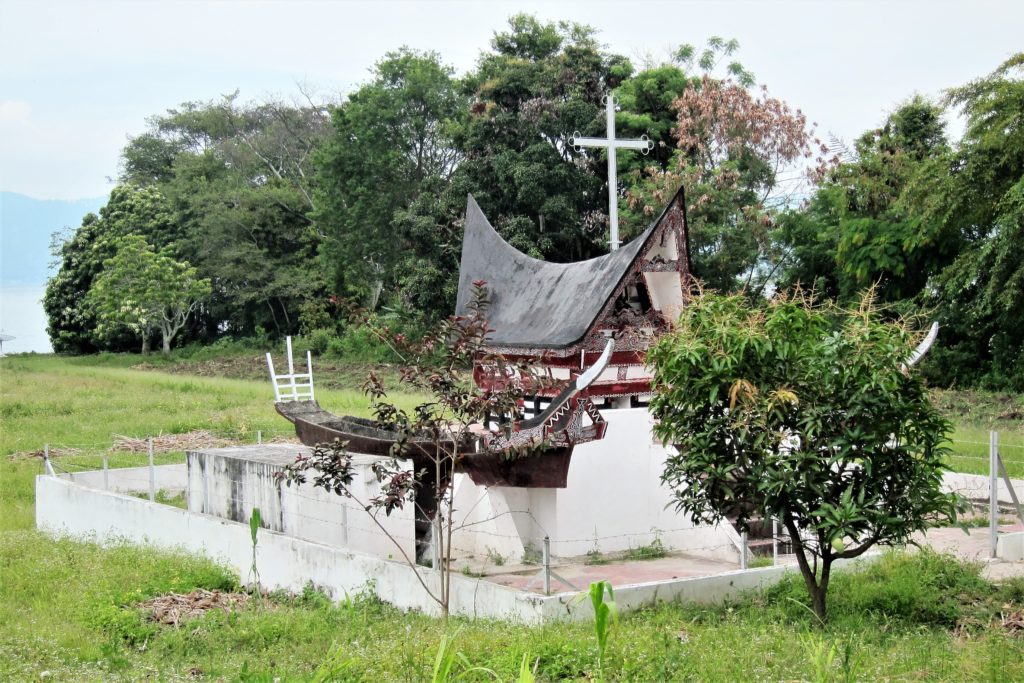
We come across this unique structure below. The sign says:
‘The monument and the grave of Ompu Landit Simanihuruk and all of his offspring.’
A Google search turns up nothing.
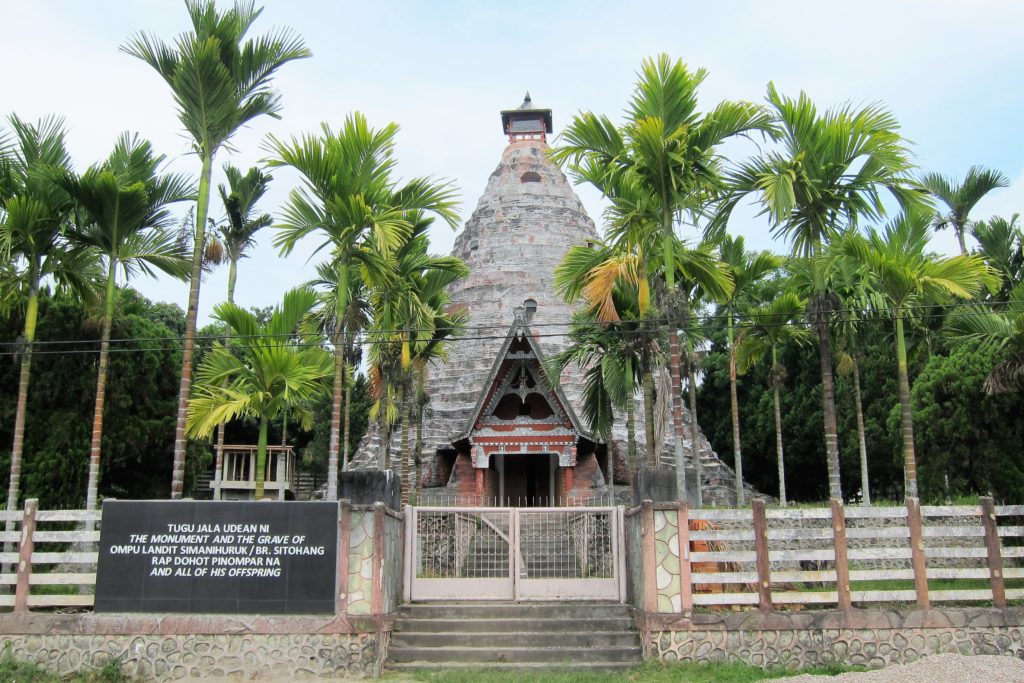
The interior contains hundreds of niches, presumably for the bones of generations yet to come.
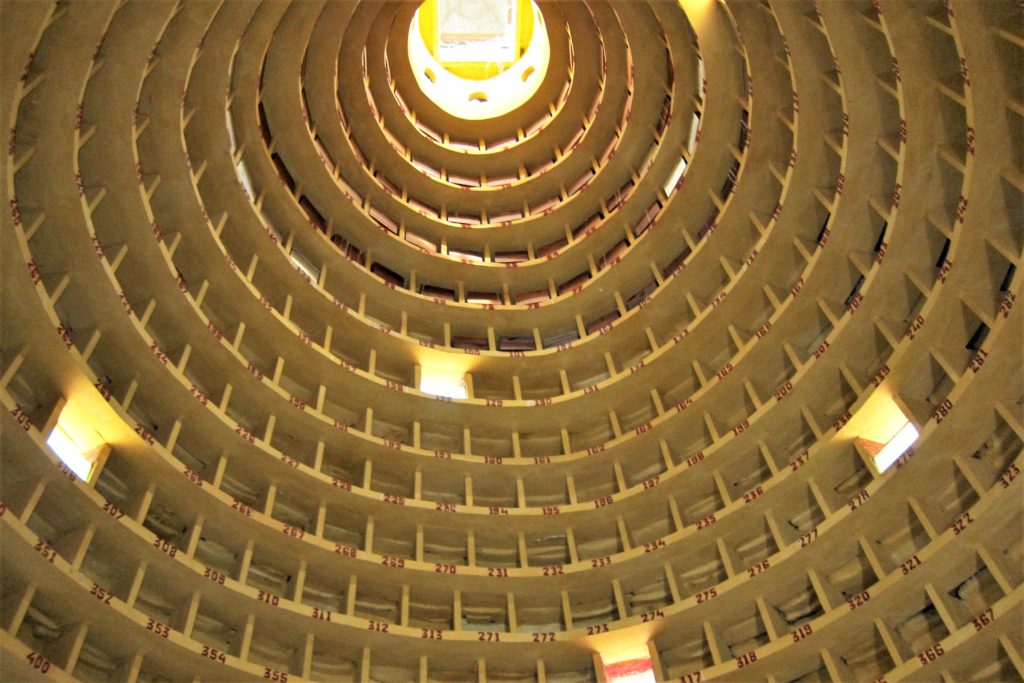
Mr. Ompu must be optimistic about the continuation of his line; only a dozen or so niches at the top are filled, leaving over 700 for the future.
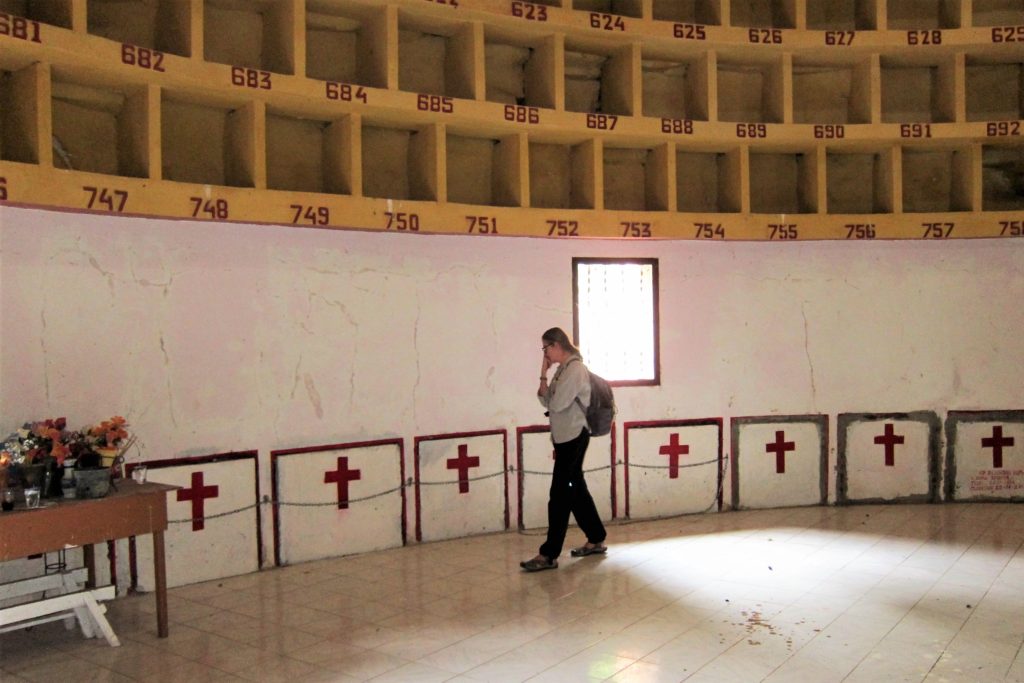
Note the crosses. People here are nominally Christian, but we suspect it’s a case of Christianity grafted onto traditional beliefs. Like many places subjected to foreign missionaries.
